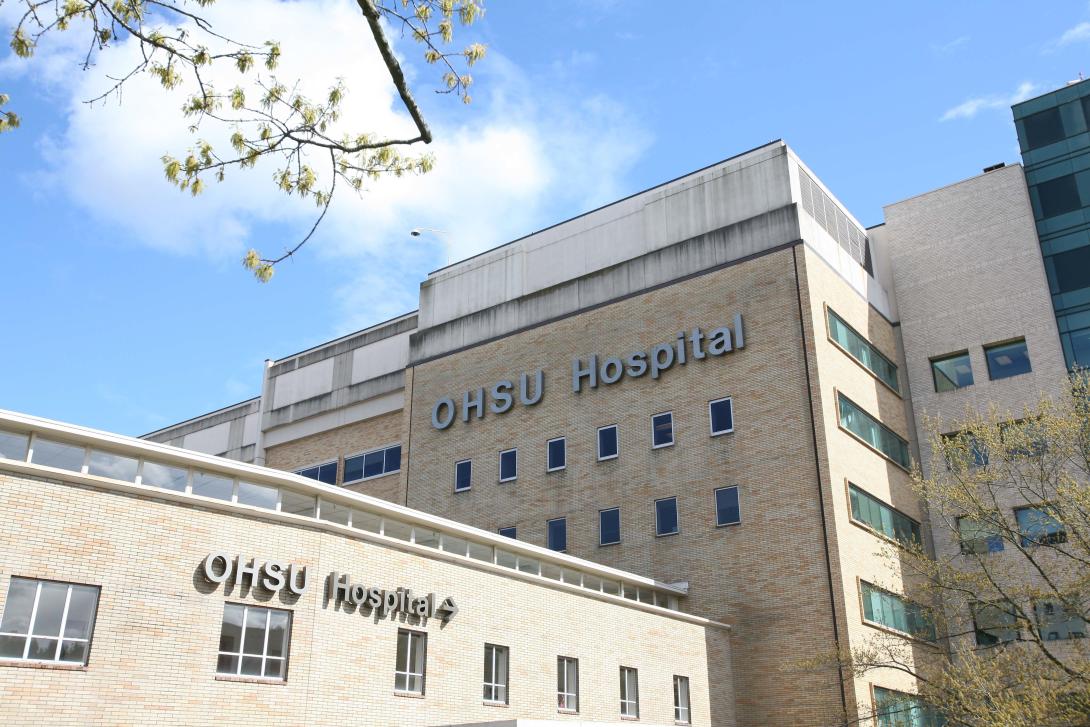
Ken Hawkins doesn’t play the lottery and isn’t much of a gambler. But on Oct. 31, at Oregon Health & Science University in Portland, he received an infusion that either could help him live longer — or was a placebo with no effect.
Which one was it?
The 77-year-old won't know for years, if then.
The Grants Pass resident is the first participant in Oregon of the first-ever study of its kind: a clinical trial of an experimental blood infusion that can gene-edit a person’s liver cells in order to improve the functioning of their heart.
Hawkins’ situation shows how gene-editing technology keeps advancing through the drug-approval process. The process culminates in what is known as a stage-3 study in which one group of people receives the therapy, and the other does not, to see if the drug works.
Hawkins hopes he's in the first group, the one that receives what he calls “the real stuff.
“I don't know the exact odds, but I know it's better than 50%,” Hawkins said of the probability he'll get it.
“I was apprehensive at first, I'll be truthful with you,” he added. “Then I got to thinking, ‘You know, what? What do I have to lose? I've got a situation here where it's not going to get any better — but there's a chance that it could benefit, and get better.’
“So, I took the chance.”
Carpal tunnel, asthma-like symptoms preceded diagnosis
A retired teacher, Hawkins was involved in fitness and exercise: he coached track, basketball, football, volleyball, wherever he was needed.
But a few years ago, he was experiencing shortness of breath when exerting himself — walking uphill or up stairs, lifting things, you name it.
His local doctor diagnosed Hawkins with a mild case of asthma and prescribed an inhaler. But then his doctor sent him to a cardiologist, who looked at an EKG and told Hawkins he might have something more dangerous.
Amyloidosis is a condition in which a defective protein clumps up within the body, driving gastrointestinal problems, nerve pain or a thickening of the heart that can be fatal. The more technical term is transthyretin amyloidosis, or ATTR.
“It shortens your life span, a heart condition like this,” Hawkins said. “Because the heart has to work harder to pump blood.”
His cardiologist referred him to an OHSU cardiologist named Ahmed Masri, calling him “the West Coast guru” of amyloidosis, Hawkins recalled.
He spoke with Masri and travelled up to Portland to get an MRI on his heart, and the diagnosis was confirmed.
“Dr. Masri asked me, have you ever had carpal tunnel? I said, ‘Yeah, I've had carpal tunnel in both my hands, and I had surgery on it.’”
It turns out amyloidosis can cause carpal tunnel as well.
Enzyme delivery to curb mutated cells
Masri prescribed a medication to stabilize Hawkins’ symptoms, and testing began to determine if he was a good candidate for an experimental therapy. The therapy's goal: to halt the production of the mutated cells that have been accumulating in the organs and tissues of his body, especially his heart.
The infusion was developed through what’s known as CRISPR gene-editing technology in which OHSU was a pioneer. The treatment delivers enzymes known as CRISPR-Cas9 that could essentially modify the genetic code of the cells within his liver and stop them from producing the defective proteins that are the problem.
OHSU is one of 20 sites hosting the clinical trial for the amyloidosis therapy. Masri, who is overseeing the trial in Oregon, told The Lund Report that finding a way to deliver gene therapy directly to the heart is “much harder to go after for now” — and is still a ways off.
But in terms of tackling problems that originate outside the heart, like amyloidosis, the CRISPR-Cas9 techology is promising, he said. Other examples where it can make a difference are high cholesterol and blood pressure — conditions that are are the focus of other clinical trials.
With Hawkins’ condition, the therapy won’t reverse the buildup that’s already happened in his body, Masri said. There's no guarantee of improvement in his symptoms, but the one-time infusion should stop things from getting worse. And over time the body may recover.
Hawkins, for his part, said he’s had nothing but very positive interactions with staff at OHSU. They've been helpful and also straight with him about the risks of the trial and the possibility that it won’t help him.
“I trust these guys,” he said.
He’s happy to be part of finding a solution to the condition — even if he didn’t personally receive a health benefit from whatever it was they administered to him three weeks ago.
The infusion didn't cause him any noticeable side effects. But the trial also involves steriods and pain relievers so that if there are effects from the treatment, the patient can't tell.
From here on out, Hawkins said, “It's kind of a waiting game.”